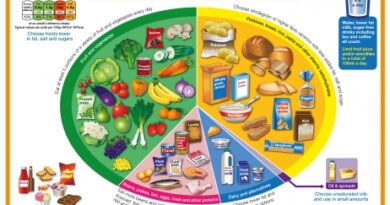10 reasons not to count calories.

10 reasons not to count calories
In our first monthly publication I thought it would be a good idea to go back to the core of The Harcombe Diet and to gather in one place all the reasons why we should not count calories. For “don’t count calories”, you can also read “don’t eat less”! All will be explained. Hopefully the new PDF summary for Diet & Health Today will make this article all the more valuable and one that you may like to refer back to when calorie counters pick a ‘low blood glucose fuelled’ fight with you!
Reason number 1 – one pound does not equal 3,500 calories
The whole notion of calorie counting is founded on claims that have no evidence base. We assume that one pound equals 3,500 calories and that we will lose one pound if we create a deficit of 3,500 calories but we have absolutely no idea where this formula came from, no evidence for the numbers and no proof for the formula.
The first part of the calorie formula is the assertion that one pound of fat contains 3,500 calories. You will struggle to find anyone who can demonstrate the precise calculation behind this, so I’ll offer this as a suggestion:
1) One pound equals 454 grams (decimal places aside, this is a fact);
2) Fat has nine calories per gram (this is the universally accepted conversion, but it is an estimate and significantly rounded down from even the original estimate);
3) Human fat tissue is approximately 87% lipid (this is a widely accepted conversion, but it is also an estimate).
Putting these together, we can come up with the sum that 454 grams of body fat tissue has approximately the calorific energy of 395 grams of pure fat (454 grams x 87%), that is 3,555 calories (395 grams x 9).
3,555 is close enough to 3,500 you may think, until you see the absurdity of how precisely the formula is applied. According to those who believe this formula, this difference of 55 calories (in this case from the calculation being approximate) would make five to six pounds difference a year. The National Obesity Forum web site states “one less (sic) 50 calorie plain biscuit per day could help you lose 5lbs (2.3kg) in a year – and one extra biscuit means you could gain that in a year!” ( http://nationalobesityforum.org.uk/families/before-you-start-mainmenu-110/34-how-weight-loss-works.html) No it won’t. I can’t even get an estimate of the formula to closer than 55 calories ‘out’. Even if the 3,555 were correct (and it isn’t), this would mean we all need a 55 calorie biscuit, no fewer, every day or we will be five pounds lighter in a year anyway. Every person who didn’t have that biscuit every day should have lost 141 pounds over the past 25 years.
With little effort I can find evidence in obesity journals that fat has anywhere between 8.7 and 9.5 calories per gram. The same (1911) obesity journal that says that human fat tissue can be 87% lipid also says that it may be 72% lipid.
Taking the extremes of these, we can establish a range whereby one pound of fat could contain anywhere between 2,843 and 3,752 calories. Given that it is currently held that one pound is 3,500 calories we could (according to this formula) accidentally gain six stone every year at the low end of the calculation and lose almost two stone in the same year if one pound is 3,752 calories. Don’t worry about any of this – because the formula doesn’t hold at any other level either.
Reason number 2 – a calorie is not a calorie
A calorie as a unit of energy is a calorie as a unit of energy, just as an inch as a unit of length is an inch as a unit of length. However, that’s as far as this statement (a tautology to be precise) should be allowed to go. A calorie is not a calorie the minute it enters the human body.



